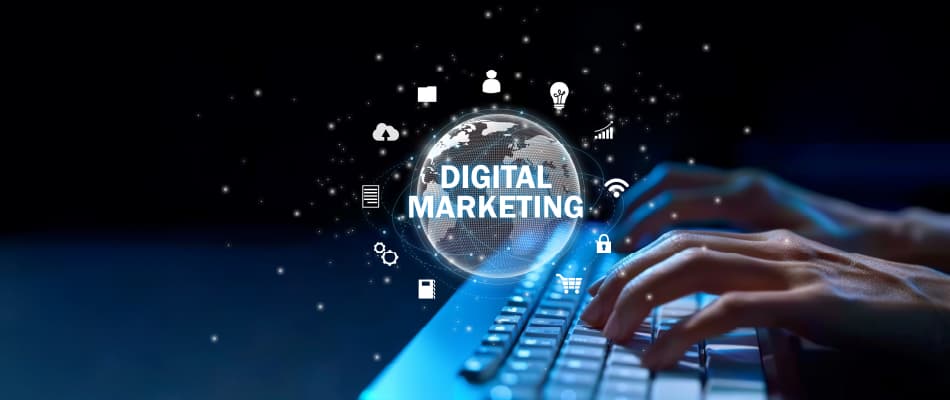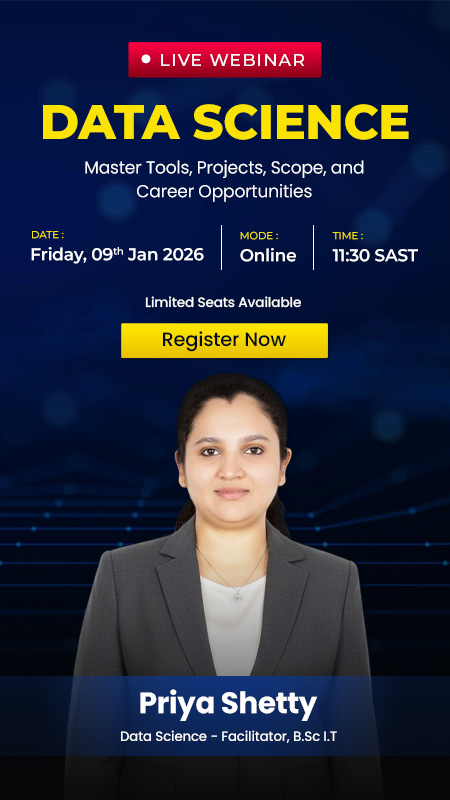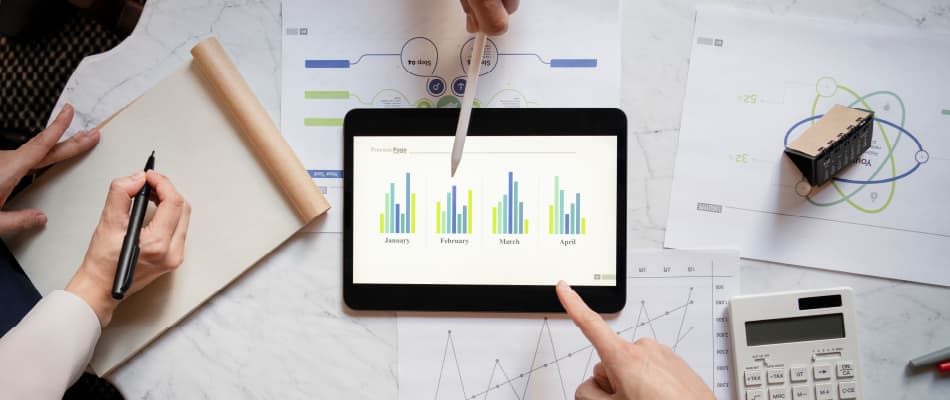Types of Digital Marketing- Details about Types, Tools and Marketing Strategies!
Digital marketing has become an essential part of business strategies because it allows companies to reach a large audience quickly and efficiently. Unlike traditional marketing methods like TV commercials or print ads, digital marketing focuses on engaging with people on online platforms. There are different types of digital marketing with several unique approaches and benefits. Examples of digital marketing are content marketing, social media marketing, Pay-per-click (PPC) advertising, Search Engine Optimization, etc. Content marketing is a type of digital marketing that includes creating valuable content like blog posts and videos to attract and engage customers. Social media marketing uses platforms like Facebook and Instagram to connect with potential customers and build a community around a brand. Pay-per-click (PPC) advertising includes paying for ads that appear on search engines or social media, and businesses only pay when someone clicks on the ad. Read the article to learn more about types of digital marketing, tools used in digital marketing, digital marketing strategies.
What is Digital Marketing?
Digital marketing means promoting and selling products and services using websites, apps, mobiles, social media, search engines, and other digital means. Unlike traditional marketing, which relies on methods like print ads or TV commercials, digital marketing focuses on using the Internet and digital technologies to reach potential customers.
This includes various techniques, such as search engine optimisation (SEO), social media marketing, and email marketing. SEO helps websites rank higher on search engines like Google, Safari, etc, whereas social media marketing includes promoting products on platforms like Facebook, Instagram, and Twitter. Moreover, email marketing is where businesses send promotional messages directly to customers’ inboxes.
Another technique is content marketing, which includes creating valuable content, such as blog posts, videos, or infographics, to attract and engage the audience. Pay-per-click (PPC) advertising is also common, where businesses pay for ads that appear on search engines or social media and only pay when someone clicks on the ad.
Overall, digital marketing is about using different online channels to connect with people, build brand awareness, and drive sales. It offers businesses the opportunity to target specific audiences more precisely and track the effectiveness of their marketing efforts.

Top 4 Types of Digital Marketing
Digital marketing uses different methods to connect with people. Knowing about Content Marketing, SEO, Social Media Marketing, and Pay-Per-Click Advertising helps to create a strong and effective digital marketing plan.
1. Content Marketing
Content marketing focuses on creating and sharing valuable content to attract and engage a target audience. This includes blog posts, videos, infographics, and eBooks. Content marketing aims to provide useful information that addresses the audience’s needs and interests. By offering high-quality content, businesses build trust and authority. Regularly updated content can drive more traffic to a website and improve brand visibility. Effective content marketing promotes a loyal audience and encourages conversions.
2. Search Engine Optimization
SEO is the practice of optimising a website to rank higher in search engine results pages (SERPs). It includes keyword research, on-page optimisation (like meta tags and content), and off-page strategies (such as backlinks). SEO aims to increase organic traffic from search engines like Google. SEO improves the site’s visibility, making it easier for users to find it when searching for relevant keywords. It also enhances user experience by ensuring the website is fast and mobile-friendly. Regular SEO updates are necessary for changing algorithms and maintaining rankings.
3. Social Media Marketing
Social media marketing includes using platforms like Facebook, Instagram, Twitter, and LinkedIn to connect with the audience. It includes creating and sharing content, running paid ads, and engaging with followers. The aim of social media marketing is to build brand awareness, drive traffic to the website, and promote community engagement. Social media allows businesses to reach a wide audience and target specific demographics. It also provides valuable insights through analytics, helping to refine strategies.
4. Pay-Per-Click Advertising (PPC)
PPC advertising includes showing ads on search engines or websites where advertisers pay each time their ad is clicked. It includes platforms like Google Ads and social media ads. PPC offers immediate visibility and targeted reach, as ads are shown to users based on their search queries or interests. It requires careful budget management and optimisation to ensure cost-effectiveness and Return on Investment (ROI).
Also Read – Know the Significance of the 7 C’s of Digital Marketing
All Types of Digital Marketing
Digital marketing covers many methods of connecting with people. These methods include Affiliate and Influencer Marketing, Email Marketing, Mobile Marketing, and more. Each type has its own way of reaching and engaging with audiences. Check them out below.
1. Affiliate and Influencer Marketing
Affiliate marketing involves partnerships with individuals or companies (affiliates) to promote products or services. Affiliates earn a commission for each sale generated through their unique referral links. Influencer marketing involves promoting products or services by using a large social media following. These influencers have built trust with their audience, making their recommendations highly effective. Effective affiliate and influencer marketing requires careful selection of partners and monitoring of performance.
2. Email Marketing
Email marketing includes sending targeted emails to a list of subscribers to promote products, services, or content. It is used for various purposes, such as newsletters, promotional campaigns, and customer retention. The goal is to engage the audience, build relationships, and make conversions. Personalisation and segmentation are key to successful email marketing. It ensures that messages are relevant to each recipient. It also provides a cost-effective way to communicate directly with customers. Email marketing offers countable results through open rates, click-through rates, and conversion tracking.
3. Mobile Marketing
Mobile marketing targets users on their mobile devices, such as smartphones and tablets. It includes strategies like SMS marketing, mobile app advertising, and in-app promotions. Mobile marketing aims to reach users where they spend most of their time. Mobile-friendly websites and responsive designs are important to ensure a better user experience. Location-based marketing is also useful to deliver personalised offers based on the user’s geographic location. Mobile marketing is very useful in the growing trend of mobile internet usage for engagement and conversions.
4. Influencer Marketing
Influencer marketing focuses on collaborating with influencers who have a significant online presence and a wide following. These influencers create content that promotes a brand’s products or services to their audience. The strategy relies on the influencer’s credibility and relationship with their followers to drive engagement and sales. Influencer marketing can take various forms, including sponsored posts, product reviews, and social media takeovers. It helps brands reach a wider and more targeted audience. The effectiveness of influencer marketing is measured through metrics like engagement rates, reach, and conversions.
Different Types of Digital Marketing Strategies
Digital marketing strategies help businesses reach their target audiences in different ways. They include Inbound Marketing, which attracts people with valuable content, and Outbound Marketing, which reaches out to potential customers directly. Performance Marketing focuses on paying for specific actions like clicks or sales. Each strategy has its own approach to achieving marketing goals. Learn more about these strategies below.
1. Inbound Marketing
Inbound marketing focuses on attracting customers through valuable content and experiences. Instead of pushing products or services on consumers, it aims to draw them in with helpful resources, blogs, social media, SEO, and more. Inbound marketing includes four stages: attracting the audience, converting leads, closing sales, and delighting customers. It emphasises building long-term relationships by providing solutions to customers’ problems. This strategy helps to build trust and credibility with the audience. Effective inbound marketing requires understanding the target audience’s needs and preferences. Tools like analytics and CRM systems are used to track and optimise performance.
2. Outbound Marketing
Outbound marketing includes directly reaching out to potential customers through various channels. This includes traditional methods like TV commercials, radio ads, print media, and direct mail, as well as digital tactics like display ads, cold emails, and telemarketing. Outbound marketing often uses a more direct and aggressive approach compared to inbound marketing. It can be effective for quickly generating awareness and driving immediate results. However, it can also be seen as intrusive if not executed thoughtfully. Measuring ROI in outbound marketing is crucial to determine its effectiveness.
3. Performance Marketing
Performance marketing is a results-driven approach where advertisers pay for specific actions consumers take. These actions include clicks, leads, sales, etc. Common channels for performance marketing include affiliate marketing, PPC advertising, and social media ads. It allows precise tracking and optimisation of campaigns through analytics and data. This strategy helps allocate budgets more efficiently by focusing on high-performing tactics. Performance marketing requires constant monitoring and adjustment to maximise ROI. It often includes a collaborative effort between marketers and publishers.
Types of Digital Marketing Platforms
Digital marketing platforms help businesses promote their products and services online. These platforms include search engines, social media sites, email marketing tools, etc. Learn more about the tools used in these platforms below.
- Google Search Console: Helps monitor and maintain your site’s presence in Google Search results.
- Moz: Provides tools for keyword research, link building, site audits, and page optimisation insights.
- SEMrush: Offers competitive analysis, keyword research, backlink tracking, and more.
- WordPress: A popular CMS that supports SEO plugins and is highly customisable for content marketing.
- Mailchimp: Provides email marketing automation, campaign tracking, and analytics.
- Constant Contact: Known for its easy-to-use email editor and marketing automation features.
- SendinBlue: Offers email marketing, SMS marketing, and automation tools.
- Facebook Ads Manager: Allows businesses to create, manage, and track Facebook ad campaigns.
- Buffer: Offers social media scheduling, analytics, and team collaboration tools.
- Google Ads: A leading platform for creating and managing PPC campaigns on Google Search and Display Network.
- Facebook Ads: allows targeted advertising on Facebook and Instagram.
- ShareASale: A popular affiliate marketing network for finding and managing affiliate partners.
- CJ Affiliate: Offers a wide network of publishers and advanced tracking tools.
- Adobe Analytics: Offers deep insights into customer data and marketing performance.
- KISSmetrics: Focuses on tracking individual and group behaviours on your site.
- Hotjar: Provides heatmaps, session recordings, and feedback tools to understand user behaviour.
- YouTube: The largest video-sharing platform, allowing businesses to reach a wide audience.
- Vimeo: Offers high-quality video hosting and customisable video players.
- Wistia: Provides video hosting with marketing features like calls to action and email collectors.
- Vidyard: Focuses on video analytics and integrating videos into marketing campaigns.
Take your skills to the next level — Explore: What is Digital Marketing? Key Components, Tools, and Skills
Start your Digital Marketing Career with Digital Regenesys
Enhance your digital marketing career with Digital Regenesys’ Digital Marketing with Gen AI course. The course gives you hands-on experience and practical knowledge in AI, SEO, social media marketing, and paid advertising strategies. Our expert instructors offer live classes and complete guidance to help you learn the latest trends and techniques. Over 34,000 students have already registered for the course worldwide. Our course is available online in many countries, including the USA, South Africa, Nigeria, Kenya, Uganda, Tanzania, and India, ensuring flexibility and accessibility. Join Digital Regenesys to transform your approach to digital marketing, enhance your skills, and advance your career. Enrol now to be part of the future of digital marketing with Gen AI.
In conclusion, digital marketing is essential for businesses to reach a large audience quickly and efficiently. Various techniques, such as content marketing, SEO, social media marketing, and PPC advertising, each offer unique benefits to attract and engage customers. Digital Regenesys provides a comprehensive Digital Marketing with Gen AI course that equips students with practical knowledge and hands-on experience in these key areas. Join Digital Regenesys today to transform your digital marketing approach and stay ahead in the industry.
Types of Digital Marketing – FAQs
What is digital marketing?
Digital marketing uses online platforms and tools to promote and sell products or services.
What are the top types of digital marketing?
The top types of digital marketing are Content Marketing, SEO, Social Media Marketing, and PPC Advertising.
How does content marketing work?
Content marketing includes creating and sharing valuable content to attract and engage the target audience.
What is SEO?
SEO is the practice of optimising a website to rank higher in search engine results pages.
What is social media marketing?
It includes using platforms like Facebook, Instagram, and Twitter to connect and engage with the audience.
What is PPC advertising?
PPC advertising includes displaying ads on search engines or websites and paying each time the ad is clicked.
What is the difference between inbound and outbound marketing?
Inbound marketing attracts customers through valuable content, while outbound marketing directly reaches out to potential customers through various channels.
What is performance marketing?
Performance marketing is a results-driven approach where advertisers pay for specific actions consumers take, such as clicks, leads, or sales.














